Financial Management is probably the subject that most accounting students struggle with. Understanding why this is, can be the first step in figuring out how to approach it and get through it successfully.
For those of you who know me, you know that Financial Management wasn’t my strong point in my post-grad year. I sympathise with my students often. I genuinely do feel their pain! I wrote an article on my postgrad experience just before my students’ exam one year, and judging by the response and the amount of people who read it… I am CLEARLY not alone 🙂
(Although I’m talking about Fin Man here, the same thing applies to all your studies, I just find that it seems to be more applicable for Fin Man-type topics)
What does a screwdriver have to do with your accounting studies?!
Leave a comment on the bottom of this post if you can relate to this to help students at earlier levels can re-think their study approach if needed! TIA
Are you learning the theory? Or the tools?
If you focus your studying on the theory of what the tools look like, when to use them and how, you can only ever really repeat the theory to me. If the problem changes a little, you may not be aware that the tool needs to change.
(Eg from the video: If I give you a nail instead of a screw, will you realise that you need a hammer instead of a screwdriver?)

It's a whole lot easier to see the 'shape' of the tool if you see a picture. But the purpose of them, and their uses may still be tricky. Using them to solve the problem is still tricky.
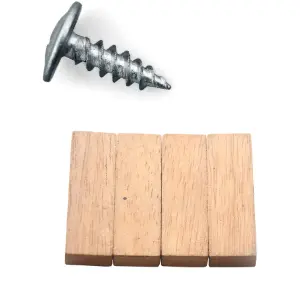
If you have a picture of the problem (instead of just theory / words), can you eliminate any of the tools in the picture above? Can you spot that any of them won't be able to 'get' the screw into the wood? Still a little tricky, right?

If I show you what the finished product should look like, does that help you identify the right tool for the job? It definitely helps you 'visualise' the shape of the problem, the desired outcome, and will help you to choose the right tool. But you still don't know how to DO this, and what tool is best
What do the tools do? What's their purpose?
Here’s what’s missing. Just by looking at the tools, you can’t always tell what you can use them for. You need to see examples of how they’re used, what they can do, in order to match the right tool to the right problem.
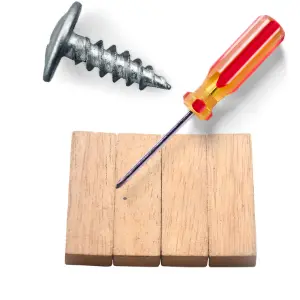
This, however, can be a little dangerous. If you've never worked with the tool yourself, used it, 'felt' it, and understood how the tool and the problem 'fit' together... then you're just learning off by heart. Screw and wood = Screwdriver. And the images you have are these ones. BUT, you don't know HOW they WORK TOGETHER.
What do we do in exams?
If you’re anything like I was… in your exams you’d land up with something like this:
 You used whatever tool you could find close at hand and did your best to FORCE that to work. (In this case, you’ve used a hammer to try get the screw into the wood). It ALMOST works, but you know it’s not right. You just weren’t able to figure out what tool you were supposed to be using!
You used whatever tool you could find close at hand and did your best to FORCE that to work. (In this case, you’ve used a hammer to try get the screw into the wood). It ALMOST works, but you know it’s not right. You just weren’t able to figure out what tool you were supposed to be using!
How many times have you said this (or something like it) after a question: “If they wanted me to use Activity Based Costing, why didn’t they just SAY so?! I CAN do it… I just didn’t know they wanted it!!!”
It’s because you don’t fully understand the purpose of the tools (ie: the formulae) you’ve learnt, and you’re not really comfortable with the ‘shape’ of the problem. Once you really understand both of these… the solution to the problem becomes more ‘obvious’.
So, what can we do?
We need to understand the problem, and understand HOW the tools work, how they interact with the problem.
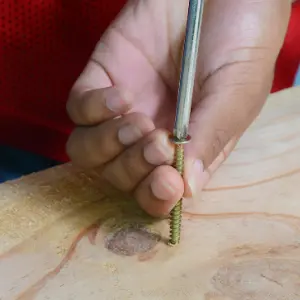
Now you can see how the problem and solution work together. How the tool is meant to be used. Make sure you spend time TRULY understanding WHY that formula exists. What it will help you achieve, why you'd use it.
Your Man Acc formulae and processes are tools in a toolbox. In an exam, you’ll be given a problem, and you’ll have to search through that toolbox to find the right tool for the job. If you’ve only learnt: Screw + Wood = Screwdriver… then any small change to the problem is going to freak you out.
BEWARE... earlier levels of studies
We get blindsided by this problem, because in earlier levels of studies, we were able to get away with learning the problem and solution off-by-heart
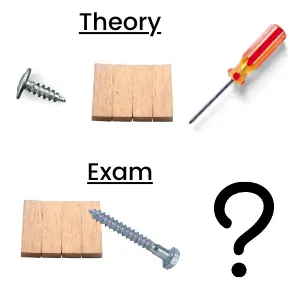
You can see that although there's a small change in the one element (the screw's a little different), you could quite comfortably pass the exam without actually knowing how to use a screwdriver. The problem? You THINK you know about tools. BUT, if I gave you a screwdriver and asked you to use it, you'd have NO idea what to do with it.
Then... later levels of studies come along
Now, the type of problem changes completely. They don’t ask you anything related to theory anymore, they just want to know if you know how to use your tools, and when the different tools would be appropriate for different jobs.

Now, they'll simply ask you to MAKE something. And in doing so, you'll need to use wood, screws and a number of other materials. In order to complete the task, you'll need to know how to use your screwdriver, and when it would be good to use. Your earlier levels of knowledge will NOT help here
What should you do?
You have to do questions really early. Notice what you’re really struggling with. Sure, you’ll have forgotten some of the details of the formulae etc, but this is not the biggest issue. Mostly, there’s a sense of “I have no idea where to start”.
When this happens… don’t go back to theory. Remember the screw and wood above! Learning more screws and pieces of wood won’t help.
Ask yourself these questions:
- Do I REALLY understand what this formulae is supposed to do?
- Why would a business use this thing? What is it intended to do?
- If I had a business that made and sold xxx (insert your favourite gadget / possession), what would be happening in my business that I’d need to use this topic / piece of information?
Honestly, for me? The textbooks never helped me. I felt like they assumed that I had a good grasp of the problem, and they seemed to START explaining from the ‘HOW TO’ of the calculation.
If you have access to a lecturer… make an appointment ASAP, and go ask them to help you with this. Take your little example of your business, so that you can use something that interests you as your base. Forget all the fancy industries and big corporations that case studies use… we don’t relate to all that! “If I baked and sold cupcakes, when and why would I need standard costing?”
Go back to go forwards
Yup, this may FEEL like you’re going backwards, I get that. However, every SINGLE question you ever do is going to be totally different. Understanding and being able to solve them yourself, instead of hoping desperately that the exam will be a copy of something you’ve seen before… much smarter! You may go back a tiny bit, but trust me, you’ll see yourself leaping ahead really quickly!

Dedicated to Nizaam Baker CA(SA)
This post is dedicated to Nizaam, who passed away tragically in Jan 2021. Nizaam taught me Financial Management in third year and postgrad. He was far more patient with me than I could've hoped for. I could, however, never understand how he found the stuff so 'obvious'! His favourite saying: "Come on guys, it's just MATHS!" I worked with him as a lecturer after I qualified and spent many hours debating how we could better help Financial Management and Auditing students to understand and pass. Our favourite complaint was "WHY won't they just come ask for help!?" There are thousands of students out there who appreciated his teaching, and he'll be missed by all.

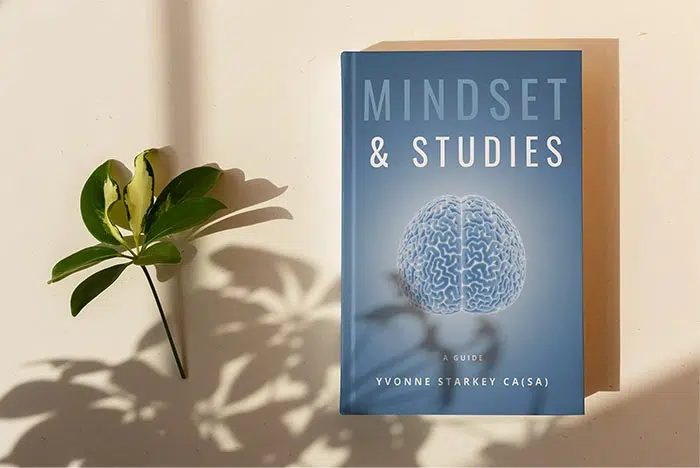



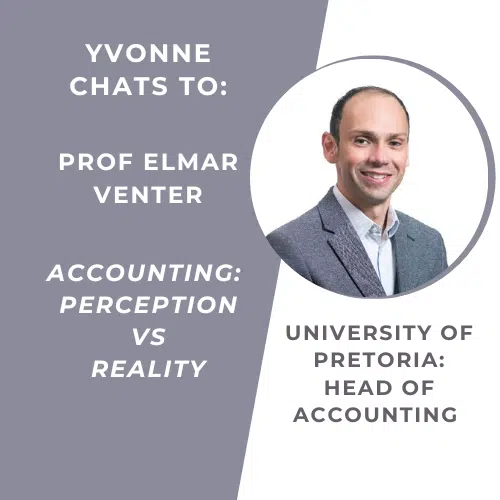


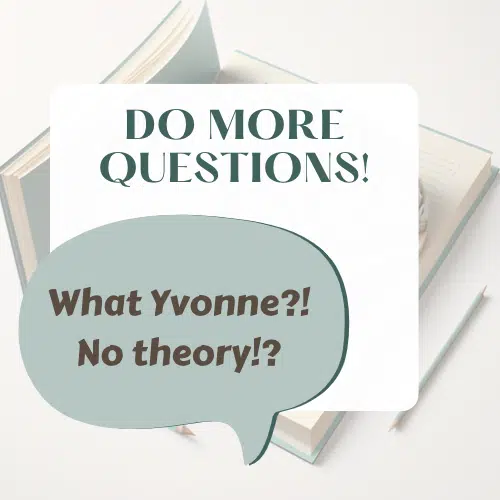




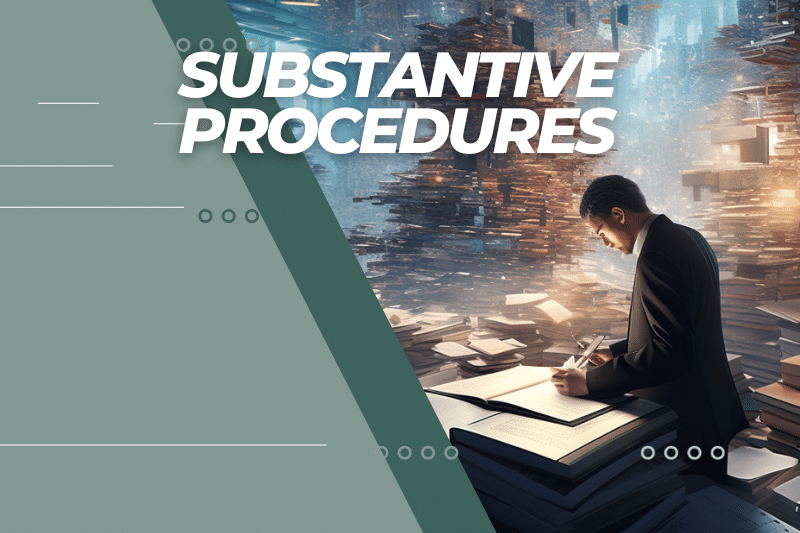

5 Comments
Lol wow, your explanation left me speechless. This was an eye opener, thank you.
Excellent analogy. There is unfortunately a large discrepancy between the theory that we are studying and application of that theory to the real world.
Thanks Yvonne!
Really interesting and well put. It’s quite amazing to know that we actually think this way when someone else (AKA yourself) highlights this “view” and shows us how we actually look when studying and prepping for examinations.
Thank you for this post! It was extremely valuable!
Kind Regards,
Kinesh
Hi! Thank you for the enlightening article;
I have completed my BCom in Supply chain management with only FAC1601 and FIN 2601 (passed, but not great), but due to work possibilities changing I am looking at more Finance/Accounting-related courses for post grad. Would you say this course is a bit much for someone with a non-Accounting background (it sounds daunting! ) ?